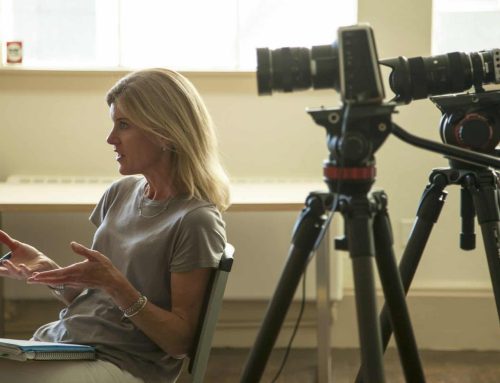It’s that time of year again we all look forward to, or dread, making our New Year’s Resolutions. Rather than focusing on immediate things like weight or exercise, I try to also look at the longer-term goals of my life. It’s what I call “Pursuing Your Personal Passion with Purpose” (and yes, it is also the subtitle of my book, Climb Higher).
While you may love the job you do today, you may also feel a calling, a yearning if you will, to take on another challenge in your life for yourself or helping others. Some things may take you back to your childhood: you were a good writer, you used to play the piano, or you were handy in building things. Some of these may have sparked a passion in you that then got buried under work and family obligations. They may have been what professionals would call our ‘core competencies’, but I’d prefer to think of then as our ‘core passions’. Think about them as a corporation might look for a new strategy or acquisition that is ‘adjacent’. However, these can also be completely different and completely opposite to what you ever did, but really wanted to do.
Whatever it is you choose to pursue, it just has to have this burning, deep-inside passion that gets you up in the morning and makes you want to do something about it. It’s like a fire that gets hotter with the more fuel and effort you put into it. It’s something that you really believe in for whatever reasons are your own; that’s why it’s so personal. The ‘purpose’ part just means that you are pursuing your passion in a systematic, thoughtful way. The ember might have come from a spark from ‘the universe’ – a chance meeting or dream or memory that then awakened what was already inside of you. Be that dream, go for that dream, and dream big. No one else will dream for you.
I believe there’s also a misconception that you can’t be fully committed and smashing it at work while you start and pursue your own Personal Passion. You (and others) will know if you take your foot off the gas at work and you’ll be disappointed with your performance and your team will take notice. However, consider the ‘extra’ time you have, whether it’s on those (coming-soon) long plane flights, waiting at the airport, commuting time with a voice recorder, working on a bus; or more recently taking an hour away from a favorite binge-watch TV series, or even time before the kids get up on the weekend.
You might find the Personal Passion time actually makes you more productive at work because you might be less afraid of failure and are willing to take more calculated risks and because your self-worth is not completely tied to the success of your area or company – which are sometimes out of your control. Whereas the Pursuit of Your Personal Passion is fully within your control.
Here’s my Ten Principles to get you going for the New Year:
- It’s Never Too Late or Too Early to Start
We’ve all seen that it’s never too late to start or continued a long-lost passion. I think about Alf Fields, who didn’t run his first marathon until he was 43 and then ran another 100 more before he was 60 including Comrades eleven times! He then topped that by doing a triathlon with his sons for his 70th birthday. All of this after a highly successful professional career in investing. It’s also never too early in your career to also look after your true non-work passions. When you’re in your 20s and 30s, many are still climbing the corporate ladder and focused on the next promotion. Having a second or third interest will make you more rounded – as well as more interesting.
I love the story of Dean Karnazes – the “The Ultramarathon Man”. Karnazes drank heavily while in school and was twice kicked out for attending university while drunk. Later, his all-night binges at Cal Poly would continue until the death of his sister. In 1992, as Karnazes recounts: “It was my 30th birthday. I was in a San Francisco bar, drunk on tequila and fed up with my life in PR for a multinational corporation.” Suddenly he flashed back to his preteen years as a running and hiking sensation and decided that was when his life had meaning. “Somehow, I found an old pair of sneakers, stripped to my shorts and, seven hours later, wound up in Half Moon Bay—I’d run 30 miles, straight through the night, to celebrate my 30th birthday.” He later would go on to run 50 marathons in 50 days in 50 states besides having run a total of 350 miles in one-shot. Beyond being a celebrated endurance athlete, philanthropist, and bestselling author, Karnazes is still an accomplished businessman with a notable professional career working for several Fortune 500 companies and start-ups alike.
- Define Your Goals
Rather than writing your New Year’s Resolutions into a short-list of short-term items, consider breaking it down into a goal’s summary – think about them as your own MBOs. You can decide to share these with friends and loved ones, or just to keep them to yourself. They can be listed under such topics as career, personal, family or however you want to group them. Some of them might seem silly (break 80 in a golf round) or they might be difficult (learn how to play the piano), but as in business, they still need to be SMART (Specific, Measurable, Achievable, Realistic and Time-Bound.) In a Forbes article, Jeff Bezos talks about goals and objectives and points out: “[I’m] not saying pursue goals that you’re already equipped to handle, instead [I’m] saying exercise new muscles, never mind how uncomfortable and awkward-feeling those first steps might be.”
- Know Before You Start – There will be Setbacks, Roadblocks and Push-Backs
Every personally or professionally successful person has had to overcome failures, disappointments or being dealt a bad card to start their lives. In an interview once with the CEO of a company, one of his first questions to me was “tell me a time when you failed at work”. How you overcome these setbacks determine how much more committed you are to your Passion. A great example is Stephen King. After consistently being rejected by publishing houses, King gave up and threw his first book in the trash. His wife, Tabitha, retrieved the manuscript (“Carrie”) and urged King to finish it. Now, King’s books have sold more than 350 million copies and been made into countless motion pictures and TV series.
You’re also going to get push-backs from your friends and family as you exercise these new muscles and devote time and mental energies into it. They will come to know that the journey will make you a better person in that you’ll be working to achieve something you (or they) did not seem possible and actually give them similar motivation.
- Take The First Step – and Then Another
As we all know, the first steps are both the easiest and the hardest. The dichotomy is that it is easy to make lists and goals, and even to start – say buying an expensive keyboard. The really hard part are the second and third steps of practicing and doing the hard work to get better each and every time you do or try something. I think about two of my musical former colleagues: Mike Zutenis in Australia and Fredrik Lindell in Hong Kong. One plays the bass, and the other is so devoted to drumming, he even went to drum-camp one year. They’re two of the hardest working guys I know, and with young families, but they still seem to find the time to take more steps towards their musical goals. I might also mention the former is also working towards a black-belt in Karate while the latter is still learning Cantonese and Mandarin outside his native Swedish language! Sometimes our journey is one step forward and three steps back. Like a mountain, however, making continual progress toward your summit is all that matters.
- Find your Spiritual Center
Whatever your religious beliefs, there is absolutely a spiritual element in our Personal Passion (as well as in our Professional Career). Besides doing the right moral and ethical things in our lives – which is not the same as being Politically Correct – we can also channel this energy into finding quiet mind time and helping others as part of our Passion. There are many books on this subject, one of my favorites being “Running with the Mind of Meditation: Lessons for Training Body and Mind”, by Sakyong Mipham.
Two people that come to mind who created a spiritual career are Susan Overland and Neil De Silva. Reverend Susan has a long resume, which includes her successful career at Hewlett-Packard where she was an executive assistant for over thirteen years while still keeping up with her theater work on various stages from New York to San Francisco and the greater Bay Area. Reverend Susan found the Center for Spiritual Living San Jose (CSLSJ) in May of 2001 and she “felt as if the Universe had read her mind and heart and designed a spiritual home just for her and she’s been at home here ever since.” Her life was profoundly transformed so much so that she was “called to dedicate her life to creating transformation and possibility in the lives of others.” Susan became a licensed Practitioner in 2005 and went on to become an Assistant Minister at CSLSJ in 2011. (She was also the officiant at our marriage).
Neil De Silva was a successful businessman and real-estate developer when he found his calling to develop a spiritual resort on the west coast of Sri Lanka – called Dutch Bay Resort. He said that one of the unique features of Kalpitiya- where the resort is located – is that it is one of the most beautiful coastal areas in the North Western Province and it is not polluted, and they want to keep it that way. “We also got the community involved in the project and one objective is to give wealth to them.” When you first arrive at the resort and meet Neil, him with the long-flowing locks and movie star looks, you can feel the serenity and spirituality he has brought to his place. He’s transformed his life into a full-time entrepreneur, real-estate developer and host and has had to fight many battles along the way. He was, nevertheless, able to bring his Personal Passion to life and retain his philosophies and spirituality while sharing with tourists from around the world what a different kind of life they can have and giving back to the local economy and people.
- Selfless Passion for Others
In this day and age, and the year-that-was-2020, more than ever, thousands of people have found their calling in starting and building non-profits for the disadvantaged or abused. The difference you can make in one person’s life can have a profound impact on the world as well as your own. Two that come to mind are Karen McDaniels and David Batstone.
Karen was a successful executive with 3M in Austin, Texas in a worldwide role. During her time there she was well-respected by her team, her customers, and her partners. As she traveled extensively for work, she came to know more of the people and situation in Indonesia and their most disadvantaged people – those living near trash dumps who were also trying to raise children and make a better life for their families. Being on the board of XSProject has given her a first-hand view of what a difference one person and a group can make to change the social fabric. XSProject purchases trash at above average prices from trash picking community members and then transforms this trash into beautifully crafted designs. XSProject is not only using small consumer wastes products like oil and soap packets but are now creating products out of advertising banners and other large-scale waste. Unlike valued ‘sanitation workers’ in many other countries who have insurance, benefits, uniforms, decent salaries, vacations and enjoy social recognition, the trash-picking population in Indonesia is somewhat “invisible”. They create a living off our consumer habits and lack of environmental responsibility. Karen has had to help resolve a myriad of issues that take advantage of her corporate and leadership experience.
David Batstone is a Professor of Entrepreneurship, at the School of Management at the University of San Francisco and is the founder and president of Not for Sale. He is also a journalist and the president and founder of Right Reality, an international business that engages in social ventures. He is a leader in Central American Mission Partners, a human rights group. Batstone has authored five books including Not for Sale: The Return of the Global Slave Trade – and How We Can Fight It, in which he wrote about human trafficking and how social inequality and poverty make it easy for traffickers to find girls to traffic. Before becoming a human rights activist, Batstone was a Silicon Valley venture capitalist. He had an epiphany at a local restaurant when he discovered it to be a human trafficking ring and it transformed his life and became his life’s calling. He calls it a “constellation of factors” that brought about his Personal Passion but his background in investment banking and ethics and Silicon Valley networking have helped him bring about significant awareness and change.
- Be a Guide and Lead
On your own journey, you might find the ability to use your own leadership skills to figuratively or literally lead others towards their own goals or up a mountain. The same competencies that got you to where you are now; the training and genetic make-up you possess might equip you to be the guide; following your own Personal Passion and helping others to achieve theirs.
One great example is Aidan Grimes. He is the founder of Our Spirit and reckons he has done the Kokoda Track more times than any other non-local – over 100 expeditions – and counting. The Kokoda Track holds a special place in the heart of Australians. It was one of the bloodiest campaigns in World War II and forever sealed the relationship between Australia and Papua New Guinea more than seventy-years ago. Aidan had worked for Microsoft in Sydney for around thirteen years and held numerous positions. Even when he was working with Microsoft as the “residential well-being evangelist”, he had his eyes on his ‘second career’.
Aidan explains: “I was working for Microsoft and I did a lot of team building for them and a group of executives came to me one day and asked me to take them to the Kokoda Track in Papua New Guinea. They had heard about the history up there and the leadership that had been displayed up there during World War II and they wanted to experience it for themselves.” When he got there he just totally fell in love with the place and all that it stood for. A fondness for the place and its history had been sown in him, but over the ensuing years he would become much more than just another tour guide. One of the areas that Aidan is quite passionate about is challenge and to push our individual physical and mental boundaries and show that we are capable of doing things we never thought possible.
He continues, “one of the clear victims of social progress in my opinion has been the loss or removal of challenge from our lives. We have got to the stage where everything we do is risk-assessed to assure that most anything we do is predictable. I am sure that this loss of challenge is being driven by the need to mitigate liability, but I can’t help wondering what it is doing to us and in particular younger people as they seek to develop their identities.” He’s now been that guide for people seeking to challenge themselves; from senior executives to autistic children.
- Music Can Lead to Multiple Paths
Music can have a profound impact on where you go and how you see the world. I like to think of it as ‘the soundtrack in our lives”. Many people have either gone into music or used it as a way to veer off to an adjacent career or profession.
David DiLullo was (and still is) a marketing professional and by all accounts, has had a successful career with name-brand companies such as eBay, Navteq and Tivo and now at Coursera. He founded Global Drum Circles in 2005 to bring “the joy and power of drumming to as many people as possible.” He leads custom drumming events for companies and groups of all kinds. David also teaches ongoing group drumming classes and sponsors musical events and concerts including the Global Heart Concert Series at East West Bookstore in Mountain View, California. He now (besides working full time), creates drumming events for corporate team-building and special events and his clients include AT&T, eBay, Cisco, Genentech, SAP, Intel, Kaiser Permanente, Infineon, Canadian Consulate, City of San Jose, and many more – which, hopefully will soon be back to in-person. One of the HR executives at AT&T says, “The drum circle was definitely a hit for our Leadership Development Program. The drum circle aligned wonderfully with our goals for the meeting… inspiring collaboration, communication, innovation and unity among our emerging leaders.” Music and business.
To become a violin soloist in the world of classical music is the dream of thousands of gifted performers, the pinnacle of success. By his late twenties, Miha Pogacnik had captured the prize, well on his way to a long career among the elite musicians of the world. It was a stunning achievement for a boy from an isolated country like Slovenia who learned to play the wrong way on a paper accordion. He knew that music had much more to offer than the status quo would allow — because he believed that it literally was much more than lifeless frequencies vibrating in the air. He knew it was magic. “I have always been trying to unlock the mystery, why was music in the ancient cultures so powerful?
In perhaps his hardest life transition of all, Pogacnik abandoned the music festivals he had worked so hard to create over the years — “threw them in the dust,” as he likes to say. He started over, to speak to business leaders through the medium of music, to inspire them to see past the bottom line. At heart Pogacnik has never stopped being a radical, and he pushes others to the radical life as well, come what may. “When people ask me what real inspiration is, I say go to the mountain just after the lightning hits and have a look at what happens. You’ll see all the smoldering trees and all the rest.” In other words, he says, don’t be afraid of the kind of inspiration that burns down all that you think you know, so that something new can take its place. Don’t be afraid to reinvent yourself as many times as it takes to follow your dream.
- Don’t be Afraid to Change Course – or to Stay the Course
An article in the Wall Street Journal some years ago both expands on and argues whether the average U.S. worker will have many careers—seven is the most widely cited number—in his or her lifetime. The article says jobs researchers say the basis of the number is a mystery. “Seven careers per person sounds utterly implausible to me,” says Ann Stevens, professor, and chair of the economics department at the University of California, Davis. The U.S. Bureau of Labor Statistics doesn’t track lifetime careers. The BLS says “no consensus has emerged on what constitutes a career change.”
I would argue that most of us have been in the same basic industry for many years, often decades. We’ve changed companies a few times, changed roles and responsibilities and even changed our geographic base and home. In essence though, we’ve gone through the phases of childhood, young adulthood (including University), raising a family and entering a profession that was either by accident, or through what we thought was the right choice at the time. We might change professions or industries, and if we’re lucky, we find ourselves someplace where we love what we do and love the people we work with at a successful employer or self-employed. I believe that as we pursue our Personal Passion, there is a balance between staying the course and having patience with what we’re pursuing – not giving up easily – versus the realization that this just wasn’t the right thing and to try (and commit) to something different. I still think of our Passion as our ‘second career’ that requires stamina, learning, perseverance, and time management – just as in our ‘first career’.
- Continually Challenge Yourself
As we start to see success in our ‘second careers’, we have to find ways to continually challenge ourselves and build on what we’ve achieved in our personal and professional lives. If you find yourself using the words ‘content’ or ‘satisfied’, it’s time to challenge yourself again before lethargy sets in. There are so many examples of successful men and women executives who seem to find renewed energy in their Personal Passions and helping lead and develop others at the same time.
Gerri Elliott is one of those. Gerri spent almost 22 years at IBM both in the U.S. and abroad including Japan. She held key senior executive and management positions in IBM and where her husband Steve was also an executive. In 2001, Gerri joined Microsoft as Corporate Vice President and co-headed North American sales and marketing teams and later leading the Public Sector business (these were $10B and $8B organizations). In 2009, still challenging herself, she joined Juniper Networks as an EVP for Strategic Alliances and later as Chief Sales Officer including a global organization of more than 3,500 before leaving Juniper in July 2014. During her time as a global corporate leader, she championed the cause of women in leadership and laid the foundation for her own ‘second career’. Later in 2014, she was named to the boards of both Whirlpool Corporation and Bed Bath and Beyond, and later at Imperva, Charlotte Russe and Puppet Labs. She is one of the founding participants in Fortune’s Most Powerful Women/US State Department’s Global Mentoring program. I remember seeing the framed photo of Gerri and Madeleine Albright in her office and thinking then, as I do know, on how much it said.
One might think then that this star-studded first and second career would be enough. But it wasn’t. In 2015, Gerri started Broadrooms. She says, “I created this site for executive women in the US who have a passion for serving on boards, and for women directors who already do serve, but don’t have the time to search endlessly for the information they need and want.” She told Fortune that “helping women get on boards is all about broadening and enriching the conversations in the boardroom by bringing new voices and ideas to the fore.” With diversity. She has continually challenged the norm and pushed new limits for herself and women. And, as if this weren’t enough, Gerri joined Cisco in mid-2018 as Chief Sales and Marketing Officer, still challenging herself and her teams to reach new heights.
Finally
If you’re reading this on a tablet, mobile or PC– you certainly have access to the Internet. Most likely, your lower two of Maslow’s Hierarchy of needs are being met: Physical (food, shelter, and clothing) and Safety/Security. When we Pursue our Personal Passion with Purpose – we can also achieve missing elements of the top three in the pyramid: Love/Belonging, Esteem and Self-Actualization. As we think about our goals and objectives for 2021, with renewed hope and optimism, consider what we want our legacy to be, how we can make a difference in others’ lives while achieving things we never ever thought possible.
Your fellow traveler,
Mitch









